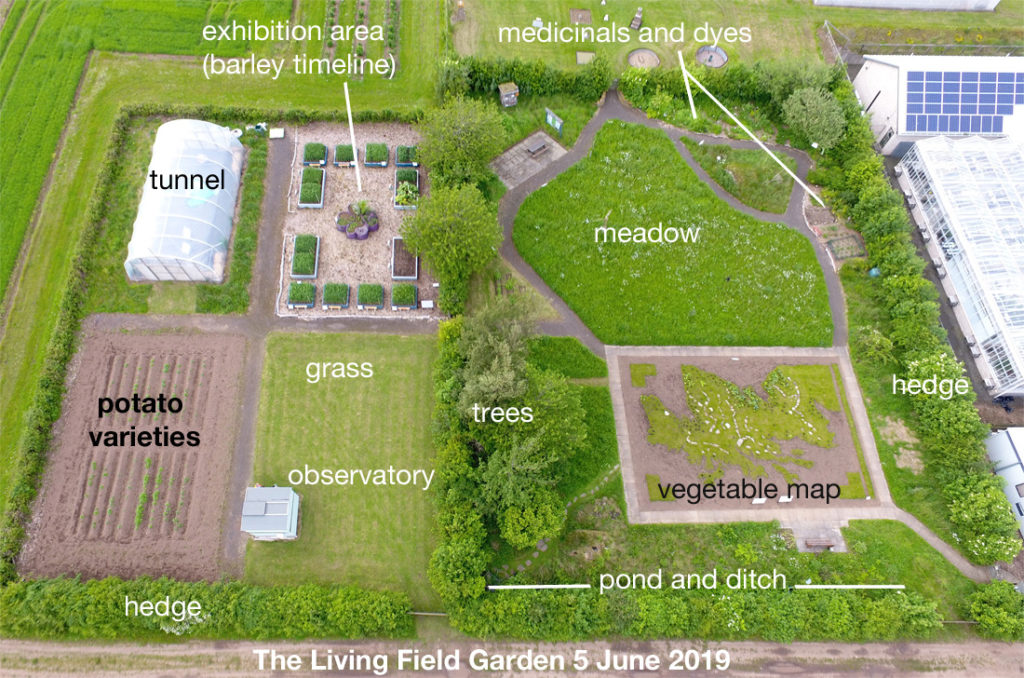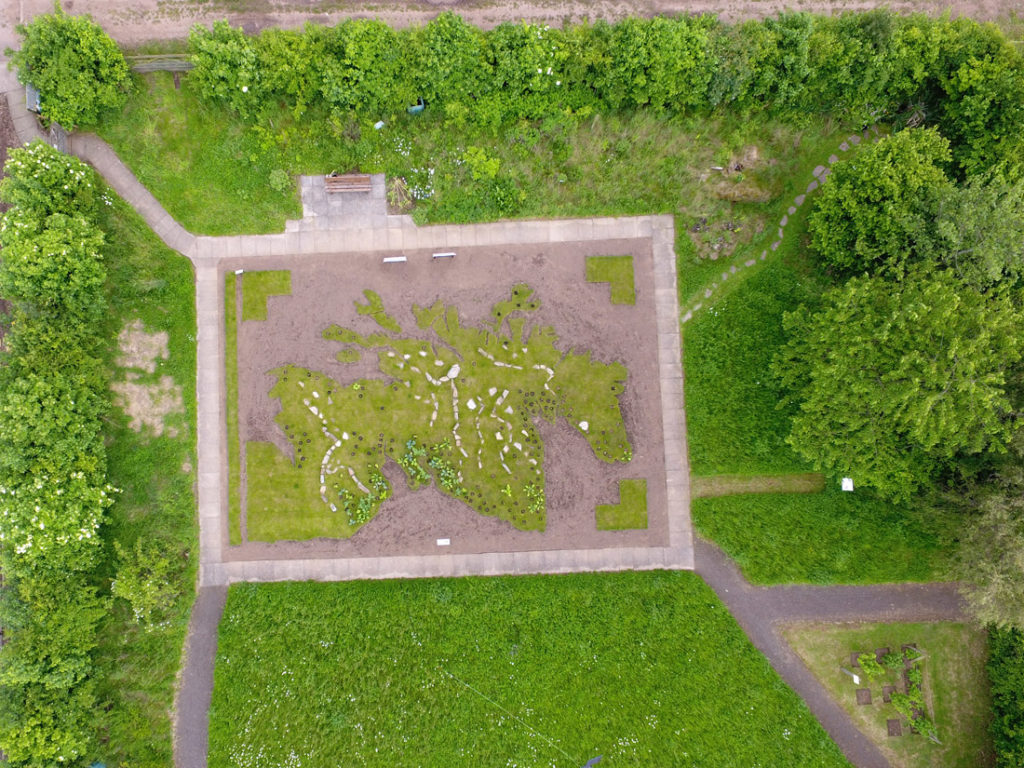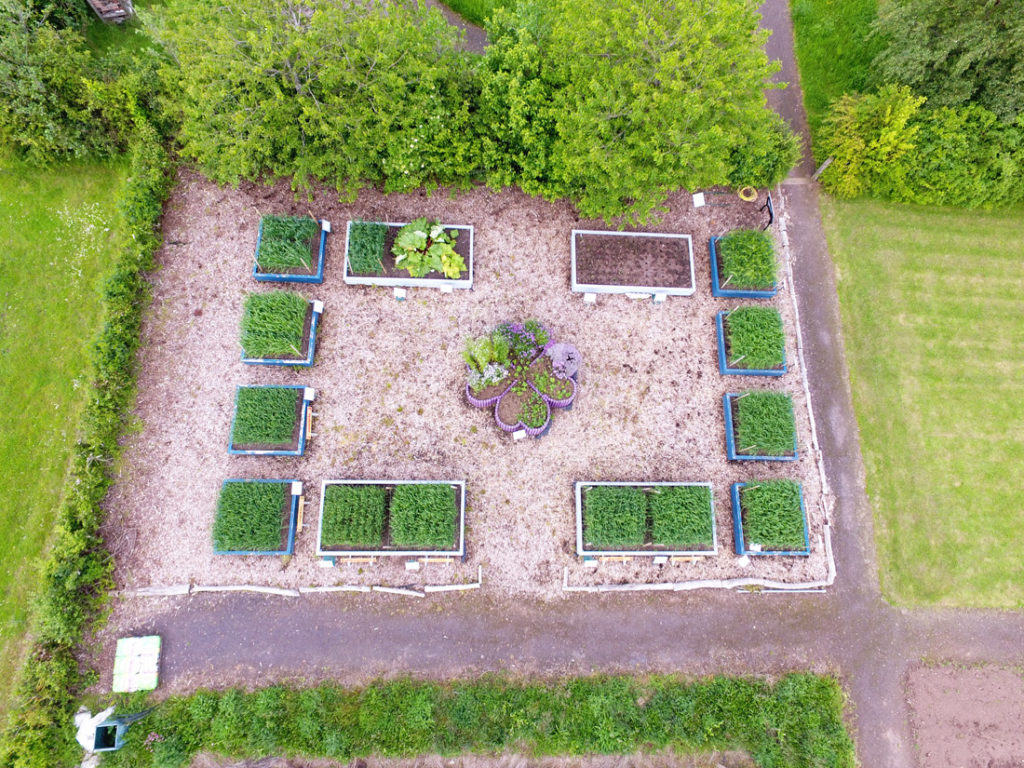June 2019 and the various projects based in and around the Living Field are starting to bear. The Farm flew its drone on 5 June to get a photograph of the Vegetable Map of Scotland and at the same time took in the whole of the garden.
The garden was designed so that some parts would remain fixed – the habitats – and other parts would change as new ideas and projects replaced older ones. The fixed parts in the image below are mostly in the right hand (east) section – the meadow, the trees, the hedges and the small pond and ditch, which is just not visible behind the lower hedge.

The plots to the north east just inside the hedges have held a small collection of medicinal and dye plants for several years and so are also almost fixed.
The Vegetable Map in the lower right quadrant is placed on the site of the previous arable plot which has grown cereals, roots, vegetables and various legumes for well over ten years, but we decided this year to turn it into something different. The image of the map below has been turned round, with north to the right.
The intention is to keep the shape of the map over time but change the cultivated plants that are being inserted into the fertile regions of the country. This year peas, potato and assorted vegetables will be grown.

The west garden is split into four plots. The top left one (north west) holds a polytunnel, used for activities when it is raining.
The top right is a exhibition area in which raised beds have been built. A few years ago they were used to contain the forage legume collection (e.g. lucerne, milk vetch, tufted vetch, kidney vetch). After that we had a varied display of vegetables and herbs and now in 2019 they are mainly occupied by the Barley Timeline, an assortment of barley landraces and varieties grown since the 1800s. There are still some herbs retained in the centre bed.

The third quadrant, south east, is down to mown grass, a space for various activities. It becomes a picnic area on open days. It also houses Dundee Astronomical Society’s observatory.
The fourth, in the south west, has had a range of plants grown in it, recently annual mixed ‘grass’ consisting of both traditional grass and broadleaf plants, and now this year a collection of potato varieties, many developed at the Institute.
The Living Field community
While the overall garden and its activities are managed by a small group, a wide range of people have been involved since first the ground was drained and levelled in 2004 – see The Making.
The Farm staff do all the hedge cutting and soil cultivation and this year the carting of rocks and laying of turf for the Vegetable Map. The Workshop make the signs, prepare the corn grinder and do whatever needs fixing. Horticulture and glasshouse colleagues help to pot and raise the thousands of plants that go out each year. Science staff, mainly from Ecological Sciences, provide the knowledge of plants, their functions and how to grow them.
What may be surprising is that very little (if any) of the contributions are formally costed. There are no project specs to adhere to. Quite a bit of the effort is given voluntarily, out of hours. This genuine community is what makes the Living Field work.
